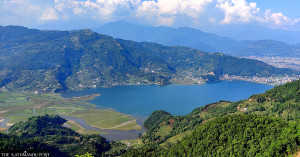Miscellaneous
Nepal at par with Yemen, Somalia on Group Grievances
A high score on group grievances indicator has placed Nepal at par with war-torn countries such as Yemen and Somalia—propelling Nepal’s fragility ranking to 33rd position in the world, the lastest Fragile State Index shows.
Sarin Ghimire
A high score on group grievances indicator has placed Nepal at par with war-torn countries such as Yemen and Somalia—propelling Nepal’s fragility ranking to 33rd position in the world, the lastest Fragile State Index shows.
According to the index, created by the Fund for Peace and published by the Foreign Policy magazine, Nepal scored 91.2 points among nations listed as vulnerable to being a failed state. Nepal was ranked 36th in the index in 2015 and 35th in 2014.
Among the 12 indicators compiled by the Washington-based research and educational institution, Nepal has particularly scored a very high 9.5 out of 10 for Group Grievances. Countries among the most fragile which have faced decades of civil war such as Yemen and Somalia are interestingly at par with Nepal in the indicator. Somalia has 9.4 and Yemen 9.5. The indicator includes pressures and measures related to discrimination, powerlessness, ethnic violence, communal violence, sectarian violence and religious violence. When violence and tension exist between groups, the state’s ability to provide security is undermined and likely leads to further risk of violence, says Fund for Peace.
Conflict resolution expert Bishnu Sapkota attributed the alert in Group Grievances to the “broad instability” that the country has been facing for the past two decades. He pointed out two major factors—the slow peace process and prolonged political transition—for that. “A lot of people have been deeply disappointed with slow pace of the peace process and the ever going political transition,” Sapkota said.
Nepal suffered a decade-long civil war from 1995-2006, which left more than 17,000 dead, several hundreds missing and thousands injured. The conflict also devastated hundreds of infrastructure, including schools and hospitals. The Truth and Reconciliation Commission was formed only in 2014, eight years after the Maoists and the government signed a Comprehensive Peace Agreement. The commission started taking in complaints regarding war-era cases only recently.
The Fragile States Index, for the last 13 years, uses social, economic and political indicators to analyse how political movements, wars, peace, accords and environmental calamities of the year have pushed countries towards stability or to the brink of collapse. The ranking is based on the indicators of risk and thousands of articles and reports that are processed by the institution’s software from electronically available sources. They encourage others to use the Fragile States Index to develop ideas for promoting greater stability worldwide.
Bishnu Upreti, a conflict management expert, indicated multiple issues as to why Nepal was put on alert among the fragile states. “Several sectors such as the private business sector, the citizens and the donor community all have major grievances against the government. In this content, we could analyse that a major section of the population is very unsatisfied with the state,” said Upreti.
At ninth position, Afghanistan tops the list among the South Asian nations, followed by Pakistan at 14th. India is ranked 70th on the index, while Maldives is the least fragile country in the sub-continent at 91st position.
Despite the promulgation of new constitution last year, the details of the indicators might have a role to play in Nepal moving down the rankings, experts noted.
“In the political context, we have secured the rights of all the marginalised communities and the disadvantaged groups. However, our society faces many other concerns such as a downward spiralling of the Business index,” said Mahesh Banskota, dean of School of Arts at the Kathmandu University.
African nation Somalia tops the index followed by South Sudan and Central African Republic. Sudan and Yemen complete the top five most fragile countries. Finland is ranked the most sustainable country in the list with first position, with Norway and New Zealand completing the podium.




 24.92°C Kathmandu
24.92°C Kathmandu










